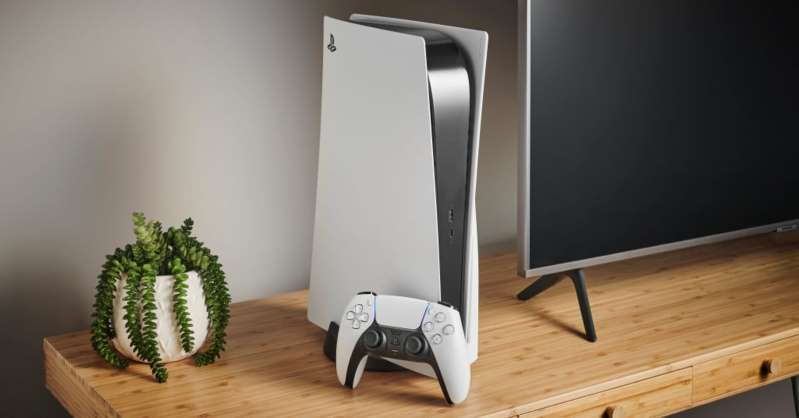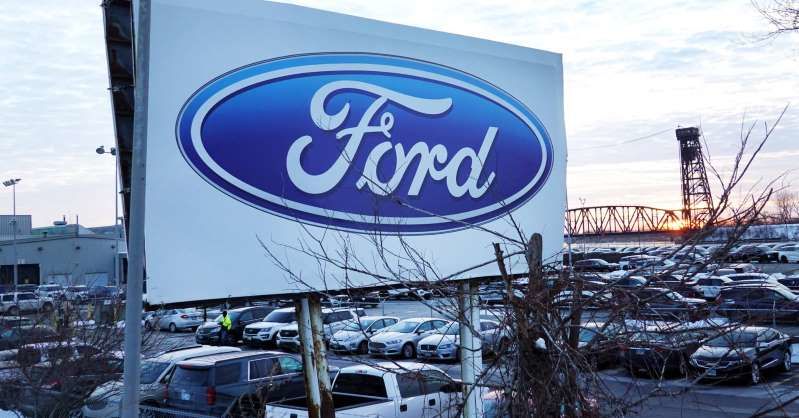
Why there's a chip shortage that's hurting everything from the PlayStation 5 to the Chevy Malibu
* A chip shortage that started in a surge in demand for personal computers and other electronics for work or school from home during the pandemic now threatens to snarl car production around the world.
* Semiconductors are in short supply because of big demand for electronics, shifting business models which include outsourcing production, and effects from former President Donald Trump's trade war.
* Chips are likely to remain in short supply in coming months as demand remains higher than ever.
A chip shortage that started as consumers stocked up on personal computers and other electronics during the Covid-19 pandemic now threatens to snarl car production around the world.
On Tuesday, GM said that it would extend production cuts in the U.S., Canada, and Mexico until the middle of March. They join a long list of major automakers, including Ford, Honda and Fiat Chrysler, which have warned investors or slowed vehicle production because of the chip shortage.
But it's not just the automotive industry that's struggling to get enough semiconductors to build their products. AMD and Qualcomm, which sell chips to most of the top electronics firms, have noted the shortage in recent weeks. Sony blamed the chip shortage for why it's so hard to get a PlayStation 5 game console.
Chips are likely to remain in short supply in coming months as demand remains higher than ever. The Semiconductor Industry Association said in December that global chip sales would grow 8.4% in 2021 from 2020's total of $433 billion. That's up from 5.1% growth between 2019 and 2020 -- a notable jump, given how large the absolute numbers are.
Semiconductors are in short supply because of strong demand for electronics, shifting business models in the semiconductor world that created a bottleneck among outsourced chip factories, and effects from the U.S. trade war with China that started under former President Trump.
A huge boom in electronics sales
The Covid-19 pandemic has spurred demand for consumer electronics.
The first wave involved people buying PCs, monitors and other gear for working or going to school remotely. Then, last fall, home entertainment gadgets like game consoles, TVs, smartphones and and tablets started flying off the shelves.
 Living room with a Sony PlayStation 5 home video game console and
DualSense controller alongside a television, taken on Novemebr 3, 2020.
Living room with a Sony PlayStation 5 home video game console and
DualSense controller alongside a television, taken on Novemebr 3, 2020.
PC sales were up 4.8% in 2020 to 275 million units, with over 10% growth in the holiday season, according to Gartner data. That reversed a years-long decline, and is the highest annual growth in the PC market since 2010.
Other gadgets sold well, too. The Consumer Tech Association, an American trade group, said that 2020 was the biggest year on record with nearly $442 billion in retail sales revenue, and is projecting big demand for game consoles, headphones, and smart home products in 2021.
All these devices include a ton of chips — not just the central processor which can cost tens or hundreds of dollars, but also less expensive little chips for controlling the display, or managing power, or operating a 5G modem.
"The current chip shortage all starts with the unprecedented demand for personal computers and peripherals as the globe worked and attended school from home," said Patrick Moorhead, founder of Moor Insights, a firm that studies the semiconductor industry.
Electronic industry giants that have reported record sales say that they could've been even better if there was enough supply. Apple, which recently reported a blowout $111 billion quarter, told analysts it didn't have enough supply of its new iPhones to meet demand. CEO Tim Cook told Reuters that "semiconductors are very tight."
AMD CEO Lisa Su, which makes the processor at the heart of Sony's and Microsoft's new consoles, said last month that it expects shortages through the first half of the year, at least. "The industry does need to increase the overall capacity levels," Su said.
Business shift to outsourcing slams factories
The shortage is highlighting a structural change in the semiconductor industry. Many of the top semiconductor companies are now "fabless," which means that they only design the chips and the technology in them. Other companies, known as foundries, are largely contracted to actually make the chips.
The foundries are run by companies like TSMC in Taiwan or Samsung in South Korea -- and as it turns out, they were already making chips as fast as they could. If a company cut orders in the early days of the pandemic, they had to get back in line.
Carmakers aren't directly competing with high-tech companies for the same chip supply. Car chips are usually based on older chip manufacturing technologies and don't need the bleeding edge.
 The Ford company logo is displayed on a sign outside of the Chicago Assembly Plant on February 03, 2021 in Chicago, Illinois.
The Ford company logo is displayed on a sign outside of the Chicago Assembly Plant on February 03, 2021 in Chicago, Illinois.
But the shortage isn't just in the fastest chips — it's in everything.
"The shortage in the semiconductor industry is across the board," said incoming Qualcomm CEO Cristiano Amon last month. "Not only leading nodes but legacy nodes," referring to chip manufacturing technology.
Cars now include scores of tiny chips, many of which perform functions like power management. Cars also use a lot of microcontrollers, which can control traditional automotive tasks like power steering, or are the brain at the heart of an infotainment system. Car makers also usually use "just-in-time" production, which means they avoid having extra parts in storage.
"The problem is even if that 10-cent chip is missing, you can't sell your $30,000 car," Gaurav Gupta, semiconductor analyst at Gartner said.
"If the chip that powers the in-car dials or automatic braking are delayed, then so will the rest of the vehicle," Bryce Johnstone, director of automotive segment marketing at chip designer Imagination Technologies previously told CNBC.
Now the automotive industry is realizing it's a lower priority than the electronics companies at the foundries. In 2020, only 3% of TSMC's sales were from automotive chips, compared to 48% for smartphones.
Tech companies are "the volume guys. They have higher margins. And they never cut down their orders and have long-term contracts with the foundries," Gupta said. "Now that this auto demand peaked faster that the OEMs had expected, autos can't get back in the queue."
The foundries are aware of the issue. TSMC, which is seen as the most advanced and important foundry, said that it was trying to help the auto companies, and said it would spend as much as $28 billion this year to increase its capacity.
"While our capacity is fully utilized with demand from every sector, TSMC is reallocating our wafer capacity to support the worldwide automotive industry," TSMC said in a statement in January.
Car manufacturers also use automotive-grade chips, which are painstakingly "qualified" against binders of industry standards to make sure they're durable and reliable. "It is more difficult for the industry to alternatively transition its production lines and supply chains elsewhere," Trendforce, a consulting group covering the semiconductor industry, wrote in a report last month.
Trump's trade war
Last last year, the U.S. placed restrictions on Semiconductor Manufacturing International (SMIC), the biggest foundry in China, barring it from getting advanced chip manufacturing gear, and making it much harder to sell its finished products to companies with U.S. ties. Customers needed to shift their orders to competitors like TSMC, Gupta said.
SMIC executives acknowledged that the U.S. move has prevented it from using its full capacity when it said geopolitical factors would prevent it from seizing "this year's rare market opportunity," referring to the chip shortage.
Some companies also decided to stockpile essential chips ahead of the U.S. deadline, using up production capacity last year. For example, Huawei stockpiled critical radio chips ahead of sanctions, Bloomberg News reported.
Stockpiling was also driven by supply concerns as Covid swept across the world. SK Hynix, a major memory chip maker, said last July it saw a surge of sales driven by "growing anxiety about IT supply chain in general."
Some companies that stockpiled chips are reaping the benefits now. Toyota said on Wednesday that it doesn't expect to reduce its rate of production because it had stockpiled four months worth of chips to ride out the shortage. Toyota raised its full-year earnings forecast by 54%.










